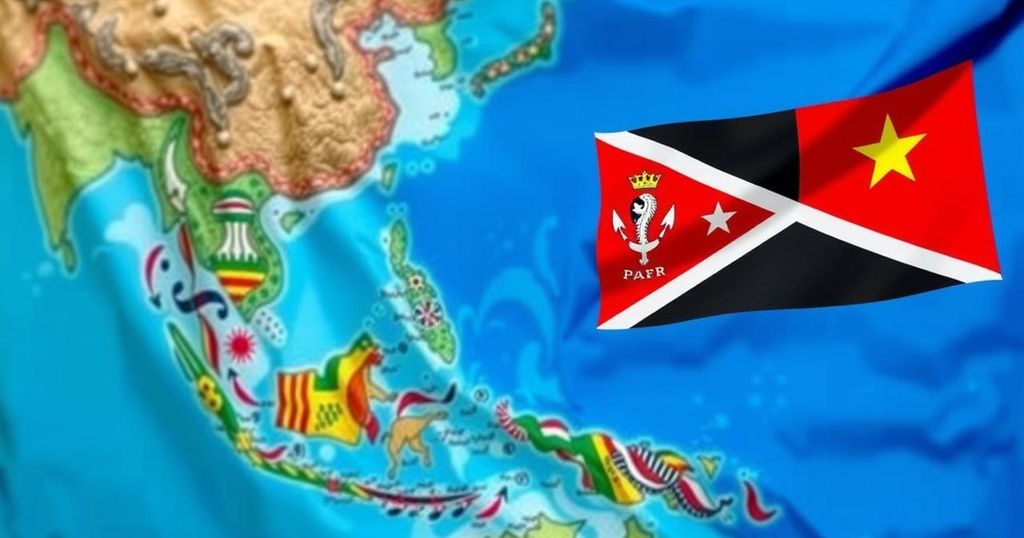Papua New Guinea Boycotts UN Climate Summit, Citing Ineffectiveness of Negotiations
Papua New Guinea has declared a boycott of the upcoming UN climate summit, criticizing it as a ‘waste of time’ with no substantive outcomes. Foreign Minister Justin Tkatchenko highlighted frustrations with the negotiations dominated by major polluters, stating they divert significant funds to ineffective consultancy. The country seeks to establish direct agreements for tackling climate issues, particularly with nations like Singapore.
Papua New Guinea has recently announced its decision to boycott the upcoming UN climate summit, describing the event as an exercise in futility characterized by empty promises from major polluting nations. Foreign Minister Justin Tkatchenko expressed the nation’s frustration over a perceived lack of meaningful progress during such negotiations, stating, “There is no point going if we are falling asleep because of jet lag because we are not getting anything done.” He criticized the leading polluters for making commitments towards climate relief, asserting that most funds are redirected to consultants rather than being utilized effectively. Papua New Guinea, which houses the third-largest rainforest globally, is notably vulnerable to climate-related challenges. Tkatchenko further remarked, “COP is a total waste of time,” highlighting the eternal cycle of discussions without tangible outcomes. Despite the expectations set during previous summits, the subsequent meetings have faced mounting criticism for their inefficacy. This year, Papua New Guinea stands out as one of the first nations to vocally call for a complete boycott of the summit, advocating instead for bilateral agreements with nations like Singapore. The Foreign Minister emphasized the potential for collaborative initiatives that could yield significant results beyond what is currently achievable through COP processes.
The backdrop to this boycott stems from a general disillusionment with the UN climate summits, particularly following the Paris Agreement in 2015. While the agreement inspired hopes for substantial global action on climate change, subsequent conferences have faced critiques due to the perceived inaction and delays in addressing urgent climate finance needs for developing nations. Countries like Papua New Guinea, which are significantly impacted by climate change, feel overlooked in these global conversations and are calling for more direct, actionable commitments rather than prolonged dialogues that yield little progress.
In summary, Papua New Guinea’s decision to boycott the upcoming UN climate summit underscores the growing discontent with international climate negotiations deemed ineffective by many smaller nations. Through this action, Papua New Guinea aims to shift its focus towards more fruitful bilateral relationships to address climate challenges in a meaningful way, reflecting a broader sentiment shared by several vulnerable countries.
Original Source: www.voanews.com




Post Comment